This App Makes Tracking Your Macros *Way* Easier
"Hearst Magazines and Yahoo may earn commission or revenue on some items through the links below."
If you're trying to lose weight or simply want to be more mindful of your diet, keeping track of what you're putting in your body every day is crucial, especially how many macros you're taking in. ICYMI, macros stand for macronutrients, which you need in large quantities to stay healthy and energized. The main macros are carbs, protein, and fat. One way to count your macros is to use a food journal or a food diary on your phone. With so many options out there, you may be wondering, What are the best macro-tracking apps?
First, know that even with the most amazing tool, macro tracking probably doesn't come natural to you and it'll take some time and effort to work that into your routine. “Give yourself a chance to get used to tracking. Also, build in some flexibility when setting your macros,” says Franziska Spritzler, RD, the author of The Low Carb Dietitian’s Guide to Health & Beauty. “Next, pay attention to how you feel on days that you end up over or under your target range for any of the macros. Do you feel hungrier, less energetic, or notice any other changes?"
Once you've become familiar with this practice, you can see which app offers features and functionalities that work best for you. It may take some trial and error to find the one you'd want to stick with. Here's what you can expect from these apps.
How do macro-tracking apps work?
Tracking macros is a big part of many diets. Take keto, for example, a diet in which you should aim to get 60 to 75 percent of your daily calories from fat, 15 to 30 percent of your daily calories from protein, and five to 10 percent of your daily calories from carbs. Without logging the macros of your foods, it can be difficult to know if you're actually following the diet correctly.
Basically, a macro-tracking app will not only track the number of calories you're consuming, but it will also give you a breakdown of the grams of carbs, protein, and fats in your meals. This kind of tracking can give you a clearer picture of the actual nutrition of the foods you're eating, which in turn can give you a better idea of how healthy your diet is and whether it's fueling you properly.
Many of these apps also ask that you log how you're feeling and how the foods you're eating are affecting you, which can give you insight into whether the diet you're currently following is a good fit. Do some foods make you gassier or more tired than others? Are you loading up on way too many carbs and not enough protein? Answering these questions will help you adjust your diet accordingly.
"Tracking macronutrients can help you see how the balance of carbs, protein and fats you're eating are making you feel," says Monica Salafia, RD, of Mind on Nutrition. "Having objective data from the tracking, along with subjective data, like energy levels, stress, sleep, etc., makes nutrition interventions way more impactful and the results sustainable."
What are the health benefits associated with tracking your macros?
There are many benefits to counting your macros, according to Spritzler. For starters, you’ll be hitting your protein target, which can help you build muscle. You’re also more likely to feel fuller for longer. Keeping an eye on your carb intake will help maintain healthy blood sugar and insulin levels, which leads to fewer cravings.
Also, having your macros set to the best fat target for you can help you reach your weight loss goals. “Your daily macro intake may be quite different from what you estimate in your head!” says Spritzler. "User-friendly tracking phone apps can help you stay accountable at all times—even if you’re traveling, dining out, or having dinner at a friend’s home.”
How do I know what my macros should be?
Macro targets vary from person to person based on how many calories you need every day and what your diet is like. But if you’re not sure how many calories you need, the apps will take care of that for you.
Macro-tracking apps use a formula to estimate the number of calories you need to maintain your current weight, lose weight, or gain weight, depending on your goal, Spritzler notes. “Tracking apps use your height, age, and activity level to calculate how many calories you need for weight loss, maintenance, or gain. Then, you can set your macro percentages and grams based on the type of diet you follow,” she explains.
If you need help figuring out which macro-tracking app is best for you, here's a list of some of the best options available for download. With one of these on your phone, following any diet will be *way* easier.
1. Nutritionix Track
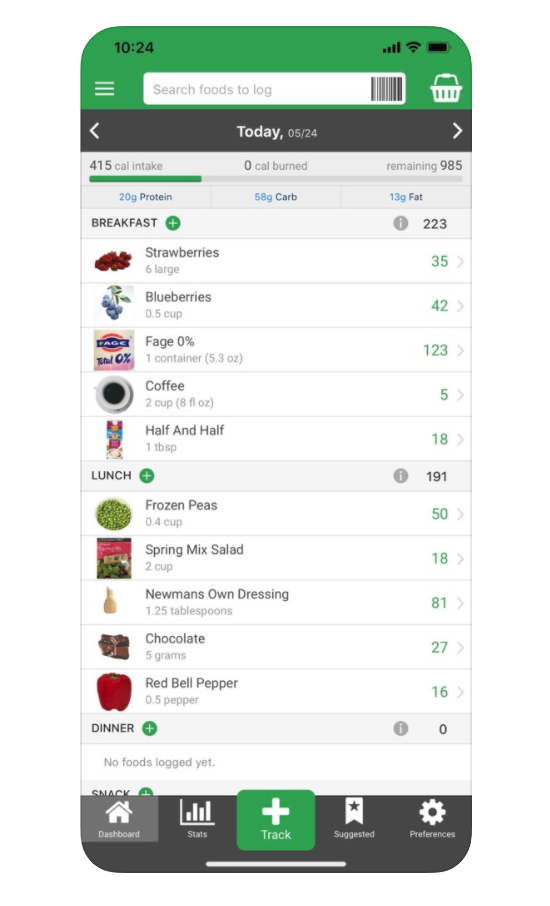
Best for: Dining out and getting takeout
The Nutritionix database has info on over 800,000 unique foods, covering about 95 percent of all grocery items in the U.S. and Canada. "I am a big fan of Nutritionix because it has a regulated database of foods, so I know the nutrition information is accurate," says Salafia. It also includes foods from the menus of over 760 restaurant chains, so you know you're still nailing your macros even when you're eating out.
Price: Free
Available on: Google Play and App Store
Review: One person who reviewed Nutritionix in the App Store wrote, “I’ve had this app for over 3 years and it’s the best tracking app I’ve found...and it’s free with no paid upgrades! What I love about it is that you can scan foods in with a barcode scanner, you can add your own custom foods or recipes, they have an EXTENSIVE restaurant database, all foods in the app are very accurate (unlike other apps), so you don’t have to guess if what you’re tracking is accurate or not."
Pros
Easy to use
Allows you to customize meals
Tracks water intake
Cons
Uses FDA rounding guidelines, which throws off calorie accuracy
Only works with a FitBit
Difficult to edit previous meals
2. MyFitnessPal
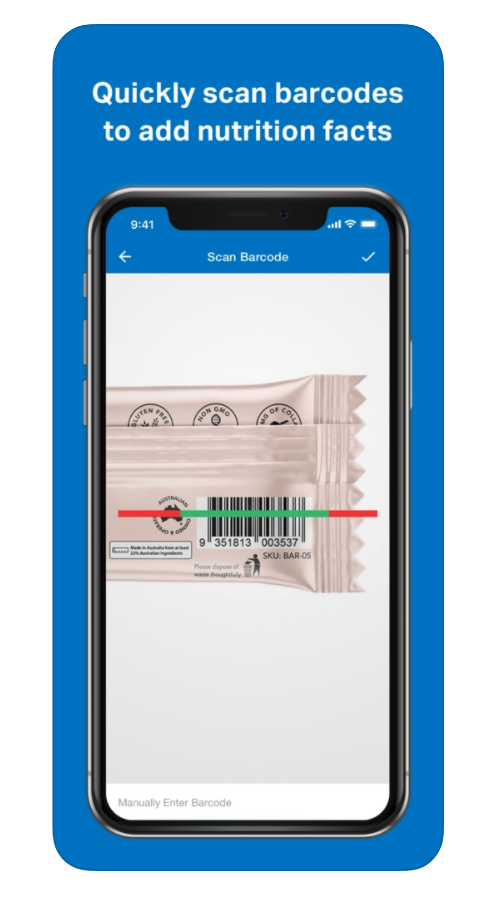
Best for: Combining your diet with a fitness plan
The MyFitnessPal app allows you to customize your macro tracking according to what your goals are: weight loss, weight management, or weight gain. Then it creates personalized goals for you based on what you chose. Salafia has used this app with some of her own clients. "I've had clients use MyFitnessPal, and they've seen good results. They just need to select the right options," she says.
The app also has a database of over 350 exercises for those who are interested in trying different workouts and logging their fitness.
Price: Free
Available on: Google Play and App Store
Review: One rave review of MyFitnessPal says, “The application allows anyone to compile a detailed log of nutritional and fitness info into an easy to use, easy to interpret, easy to afford (free), and simple to navigate system. The breakdown of information into multiple charts and graphs is a phenomenal resource. The flexibility of being able to modify multiple facets of your goals such as macronutrients, weight loss/gain per week, etc. is extremely intuitive and suitable for a wide range of fitness/nutritional goals."
Pros
Offers a large database of foods
Uses a barcode scanner if needed
Makes data easy to interpret
Cons
Hard to sync with third-party apps
Contains ads
May not deduct calories after workouts
3. Cronometer
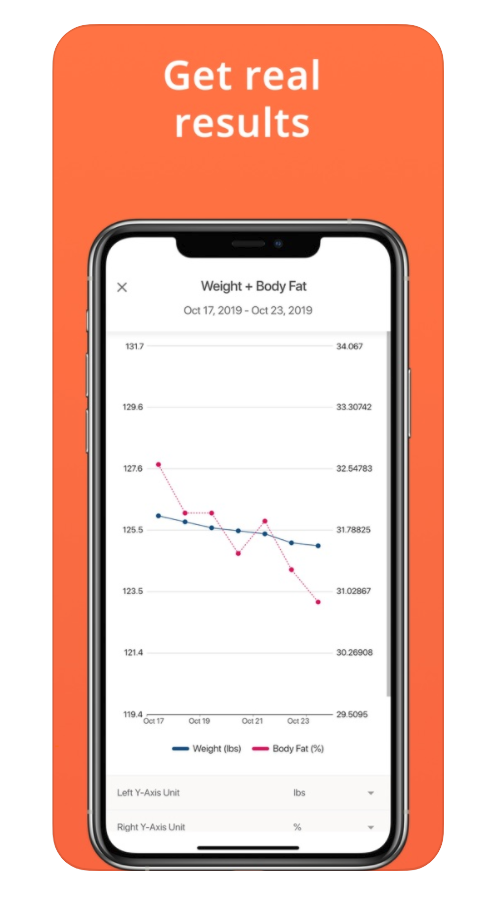
Best for: Tracking micronutrients in addition to macros
On top of tracking your macros and exercise, Cronometer can also log up to 82 micronutrients (a.k.a. the nutrients we need in smaller amounts, like vitamins and minerals) and your water intake. The app takes this information and creates nutrition reports for you, so you can easily see what part of your diet you need to adjust or how successful you've been at meeting your goals.
Price: Free
Available on: Google Play and App Store
Review: One person who reviewed Cronometer wrote, "My nutritionist told me to use Cronometer because I lost so much weight and they want me to put weight back on. My use of Cronometer has impressed my visiting nurse and my visiting dietitian because of how flexible it is and how much information you can control with Cronometer."
Pros
Frequently updated with improved features
Great for tracking diet adjustments
Teaches you more about nutrition
Cons
Slightly cluttered interface
Small food database
Does not track sodium intake
4. MyMacros+
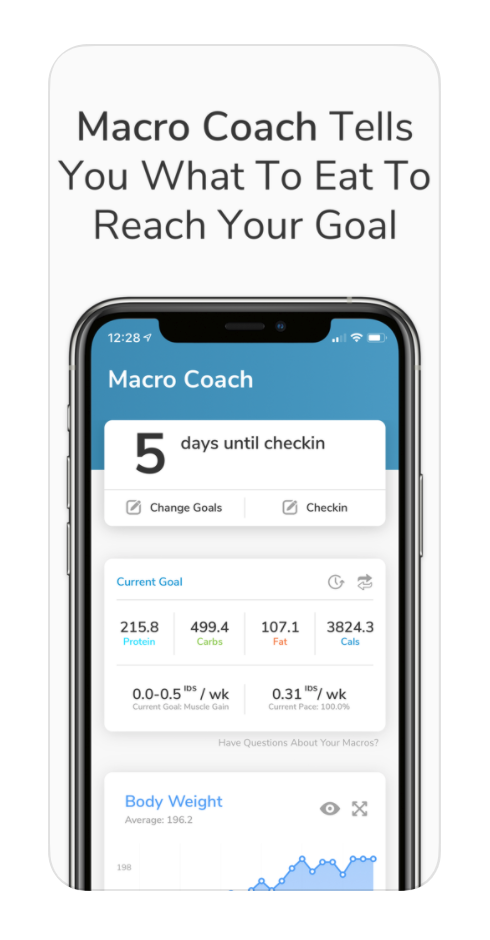
Best for: Tracking macros for the first time
If a food database of over five million foods isn't enough to explain why this app is so great, look to its other features like its barcode scanner and the ability to track several nutritional goals at once. If you're the kind of person who needs a little extra motivation, you can build a community with your friends, so that you can track each others' progress and even see what they're eating in real time.
Price: $2.99
Available on: Google Play and App Store
Review: One person who reviewed MyMacros+ on the App Store wrote, "This app is awesome! Super easy to use and navigate. I love that you can follow your friends to create accountability. The barcode scanner is a lifesaver. The update is awesome with more tracking options to keep you aware of what you are putting in your body."
Pros
Easily readable interface
Allows you to set goals easily
Ideal for details and customization
Cons
Not super user-friendly
Mostly requires manual recipe entries
Only allows you to set goals by ratio with iPhones
5. LoseIt!
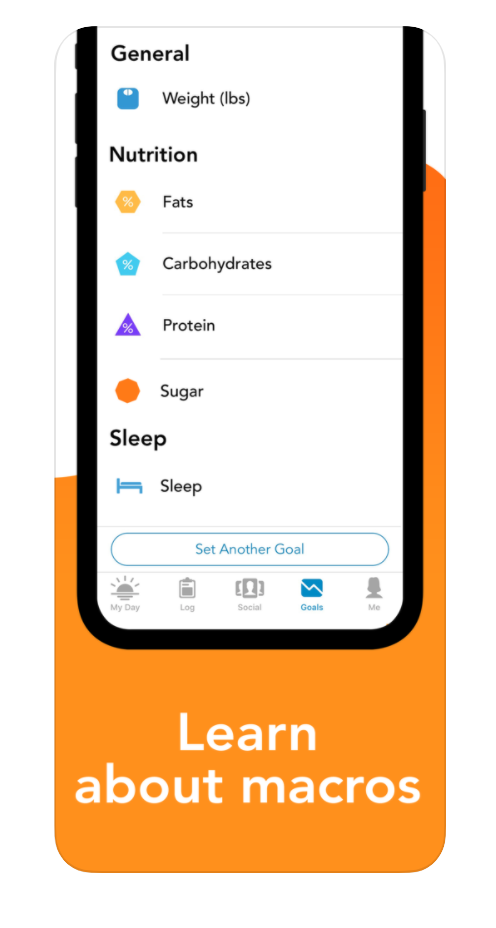
Best for: Losing weight
Salafia likes LoseIt! because it's a helpful tracker with a ton of recipe ideas for those specifically looking to lose weight. Note that it only allows you to track your macros on the paid premium version. But the app also comes with a library of workouts, a meal-planning tool, and food and exercise challenges for those who need a little extra motivation.
Price: Free
Available on: Google Play and App Store
Review: One rave review of LoseIt! on the App Store reads, "LoseIt has been my go-to tracking tool over the last five years. It has proven versatile—whether I was merely counting calories, tracking my macros, or anything in between, LoseIt has worked for me. The ability to sync automatically with Fitbit, the LoseIt Healthometer scale, and more is super-convenient."
Pros
Barcode feature for quick data entries
Has a robust food database
Includes foods uncommon to grocery chains
Cons
Contains ads
Many features can only be unlocked by upgrading
Does not track mineral intake
6. MyPlate
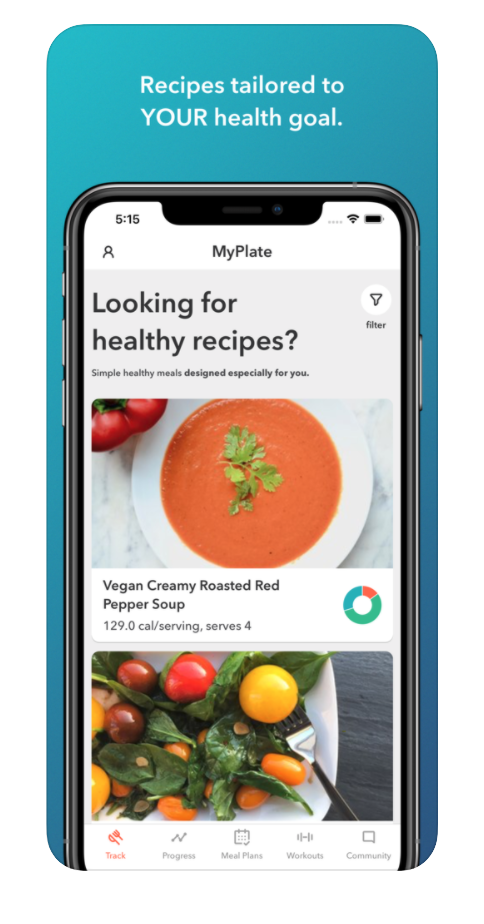
Best for: Getting recipes that adhere to a large variety of diets
Not only does MyPlate make counting macros and calories easy, but the app features a ton of healthy recipe ideas and will even help you create an eight-week meal plan with balanced macros in mind. You can also look to their real-time community feature to find support and tips from other people who share your health and fitness goals.
Price: Free
Available on: Google Play and App Store
Review: One satisfied user of MyPlate wrote, "Honestly, I thought that if I just ate nothing but healthy food, I would be okay with my weight. I didn’t track macros but ate as much healthy food as I wanted. I started to gain weight and realized that I needed to start tracking my food intake. I tried using a few other apps but when I found this, it beat everything hands down! It’s simple to use, and even though I don’t have the full version (yet), it’s not limited AT ALL like the other apps!"
Pros
Doesn't require upgrades to use the calorie tracker
Connects to Google Fit
Lowest calorie goal is set at 1200 for safety
Con
Requires some manual recipe entries
Calories per food can't be customized
Does not have a "favorites" or "go-to" meal section
7. LifeSum
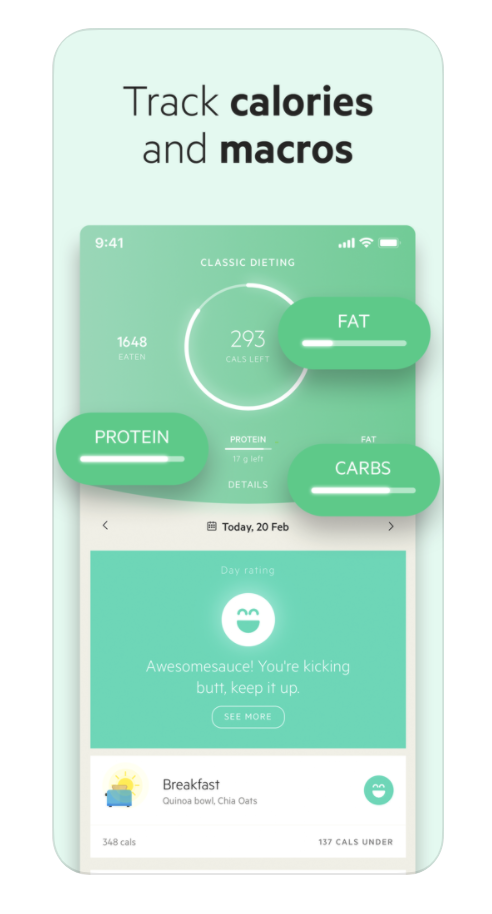
Best for: Learning how to make better food choices
In addition to tracking macros, LifeSum helps you figure out what foods you should eat a little less of and what you should fill your plate with instead. The app gives all foods and meals a basic rating, so you can see if you're hitting your suggested calorie goal. If you are not sure about what to eat, you can also browse the app for recipes aligned with your goals.
Price: Free
Available on: Google Play and App Store
Review: A person who found LifeSum helpful said, "This might be the first time I’ve ever written an app review but this app is amazing. As long as you’re diligent with inputting the food you eat, it keeps track of everything for you. Calories, protein, carbs, fat, etc. It tailors all of it to the specific diet you choose and how much weight (if any) you want to lose based on your height, weight, and timeframe."
Pros
Wide variety of diet options
Barcode scanner is available
Extensive food database
Cons
Expensive subscription
Cannot customize notifications
Nutrition information may be inaccurate
You Might Also Like
